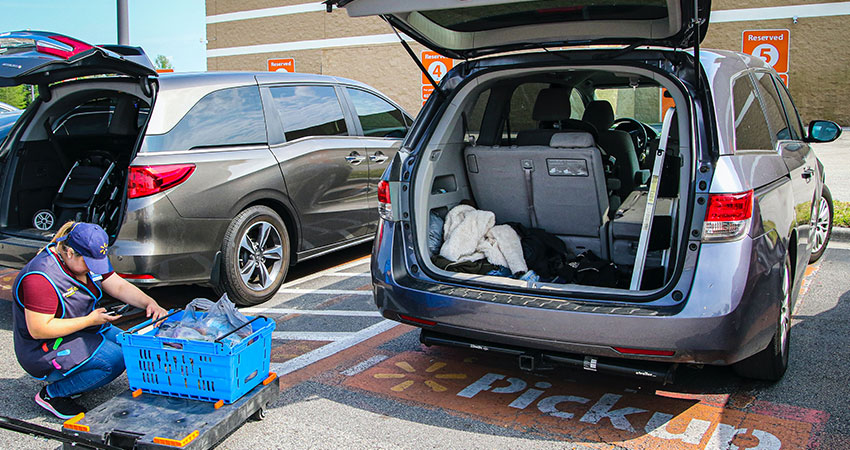Walmart gave the retail sector a much-needed pre-peak season shot in the arm, especially following Amazon’s recent miss, posting better-than-expected Q3 sales and adjusted earnings, as its low-priced grocery business soared and ecommerce revenue grew 16%, on top of a 24% gain last year.
Total revenue was $152.8 billion, up 8.7% from last year, beating the Refinitiv analyst consensus estimate of $147.8 billion, according to CNBC. Adjusted earnings per share was $1.50, compared to the consensus figure of $1.32. Same-store sales were up 8.2% in the quarter, compared to a 17.4% gain in 2021.
Walmart reached a $3.1 billion settlement this week to resolve liability lawsuits and potential lawsuits from state, local and tribal governments related to its sale of opioid products. The company “strongly disputes the allegations in these matters, and this settlement framework does not include any admission of liability,” it said in a statement to CNBC.
The settlement represented $1.05 per share of the actual Q3 net loss of $1.8 billion or 66 cents per share, compared to net income of $3.1 billion or $1.11 per share in the year-ago quarter.
Executives said Walmart had made strides in the quarter to put inventory overstock issues behind it, an issue that has plagued many retailers who over-ordered to compensate for supply chain delays in 2021.
“Walmart U.S. continued to gain market share in grocery, helped by unit growth in our food business,” said Walmart CEO Douglas McMillon in a release. “We significantly improved our inventory position in Q3, and we’ll continue to make progress as we end the year.”
Retail media networks have become a powerhouse in 2022, and Walmart is most definitely riding that wave. The company’s global advertising business grew more than 30% in Q3, led by a 40% gain at its Walmart Connect network in the U.S., and strength in Flipkart Ads.
Walmart is the majority owner of the Indian ecommerce platform; it purchased a 77% stake in 2018 for a whopping $16 billion. This edged out rival Amazon, which had bid an undisclosed amount for a 60% stake and a non-compete with the company’s founders.

